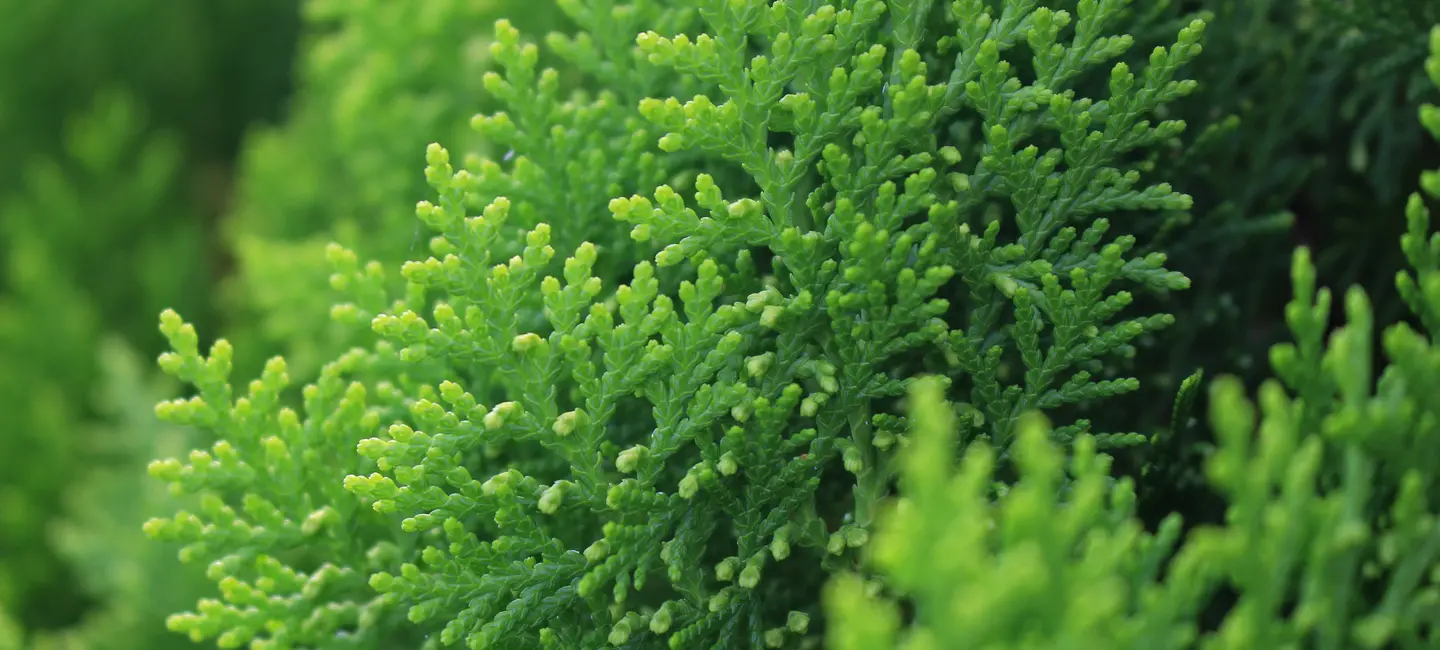
Oriental arborvitae is an evergreen tree. It grows in China, Japan, and Korea. The seeds, leaves, and leafy twigs are used to make medicine.
Oriental arborvitae is used for male-pattern baldness (androgenic alopecia), pain, hemorrhoids, abnormally heavy bleeding during menstrual periods (menorrhagia), and many other conditions, but there is no good scientific evidence to support these uses. Oriental arborvitae might also be unsafe when taken by mouth in large amounts.
Is It Effective?
NatMed Pro rates effectiveness based on scientific evidence according to the following scale: Effective, Likely Effective, Possibly Effective, Possibly Ineffective, Likely Ineffective, Ineffective, and Insufficient Evidence to Rate.
- Abnormally heavy bleeding during menstrual periods (menorrhagia).
- Anxiety.
- Asthma.
- Bleeding in the stomach or intestines.
- Burns.
- Cancer.
- Constipation.
- Cough.
- Early orgasm in men (premature ejaculation).
- Excessive sweating (hyperhidrosis).
- Headache.
- Hemorrhoids.
- Infection of the intestines by parasites.
- Insomnia.
- Male-pattern baldness (androgenic alopecia).
- Menstrual cramps (dysmenorrhea).
- Nausea and vomiting.
- Pain.
- Rheumatoid arthritis (RA).
- Seizure disorder (epilepsy).
- Short-term swelling (inflammation) of the airways in the lungs (acute bronchitis).
- Other conditions.
More evidence is needed to rate the effectiveness of oriental arborvitae for these uses.
Is it Safe?
Oriental arborvitae seems to increase hair growth, decrease swelling (inflammation), and prevent damage caused by harmful chemicals called reactive oxygen species. It might also kill certain cancer cells and slow the growth of certain types of bacteria.
When taken by mouth: Oriental arborvitae is POSSIBLY SAFE when taken by mouth short-term in small amounts. Traditionally, tea made with 6-15 grams of leafy twig from oriental arborvitae has been used short-term with no reported side effects. But it's POSSIBLY UNSAFE when taken by mouth long-term or in large amounts. Oriental arborvitae contains a toxic compound called thujone. This compound can cause restlessness, mental changes, vomiting, dizziness, tremors, kidney damage, seizures, and other side effects, especially when taken long-term or in large amounts. There isn't enough reliable information to know if taking oriental arborvitae seed by mouth is safe or what the side effects might be.
When applied to the skin: There isn't enough reliable information to know if oriental arborvitae is safe or what the side effects might be when applied to the skin.
Special Precautions & Warnings:
Pregnancy: Taking oriental arborvitae by mouth is POSSIBLY UNSAFE if you are pregnant. It contains a chemical called thujone, which might cause the uterus to contract. Don't use oriental arborvitae if you are pregnant. There isn't enough reliable information to know if oriental arborvitae is safe to apply to the skin while pregnant. Stay on the safe side and avoid use.
Breast-feeding. There isn't enough reliable information to know if oriental arborvitae is safe to take by mouth or apply to the skin while breastfeeding. Stay on the safe side and avoid use.
Porphyria, an inherited condition. Oriental arborvitae might make porphyria worse.
Kidney problems: Oriental arborvitae might make kidney disease worse.
It is not known if Oriental Arborvitae interacts with any medicines. Before taking Oriental Arborvitae, talk with your healthcare professional if you take any medications.
Herbs that contain thujone: Oriental arborvitae contains a chemical called thujone. Using it along with other herbs that contain thujone increases the risk of thujone poisoning. Thujone can cause restlessness, mental changes, vomiting, dizziness, tremors, kidney damage, seizures, and other side effects. Thujone-containing herbs include oak moss, sage, tansy, thuja, tree moss, and wormwood. Don't use oriental arborvitae with any of these.
There are no known interactions with foods.
The appropriate dose of oriental arborvitae depends on several factors such as the user's age, health, and several other conditions. At this time there is not enough scientific information to determine an appropriate range of doses for oriental arborvitae. Keep in mind that natural products are not always necessarily safe and dosages can be important. Be sure to follow relevant directions on product labels and consult your pharmacist or physician or other healthcare professional before using.
Bai Zhi Ren, Biota d'Orient, Biota Orientalis, Ce Bai, Ce Bai Ye, Chinese Arborvitae, Platycladus orientalis, Retinispora juniperoides, Thuja orientalis, Thuya de Chine, Thuya d'Orient, Tuya Oriental.
Information on this website is for informational use only and is not intended to replace professional medical advice, diagnosis, or treatment. While evidence-based, it is not guaranteed to be error-free and is not intended to meet any particular user’s needs or requirements or to cover all possible uses, safety concerns, interactions, outcomes, or adverse effects. Always check with your doctor or other medical professional before making healthcare decisions (including taking any medication) and do not delay or disregard seeking medical advice or treatment based on any information displayed on this website.
© TRC Healthcare 2024. All rights reserved. Use and/or distribution is permitted only pursuant to a valid license or other permission from TRC Healthcare.
